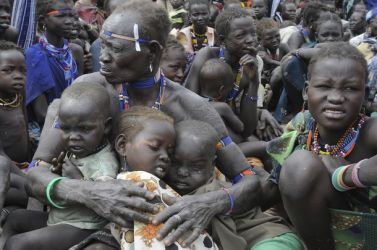Juba unveils water project to mitigate conflicts in Jonglei
November 28, 2012 (JUBA) – The Government of South Sudan and its development partners have unveiled a three-year water project, seeking to reduce conflict in Jonglei state.

“Water points and wells have been poisoned in the past, and this kind of investment may not have been feasible during the war,” said Sue Lautze, Head of Office, United Nations Food and Agriculture Organisation (FAO).
Lack of water resources, has over the years, been largely seen as a major contributor to the recurring conflict in Jonglei.
Issac Liabwel, Undersecretary in the ministry of Water Resources and Irrigation said he expect the project to contribute to community stability and peace in Jonglei, particularly in Uror and Nyirol counties where natural resources-based conflicts are prevalent.
As part of the plan, however, a feasibility study for the Canadian aid-funded project will this Thursday be unveiled at a stakeholder’s workshop, which brings together central government officials, state ministers, the civil society and donor partners.
Jonglei, has in recent months, witnessed some instability, especially along the cattle routes to and from the areas inhabited by the Lou Nuer. These include Uror, Nyirol and Akobo-West counties and along Pibor-Bor corridors, between Pibor and Akobo areas.
“The problem is enormous,” says Ali Said, a Chief Technical Advisor at FAO, adding that, “People are killing each other due to completion overwater resources.”
Meanwhile, studies conducted in Nyirol, have reportedly confirmed that water for livestock in the dry season grazing area remains a critical resource issue for the agro pastoralists in Pultruk, Thol, Waat and Nyambor payams [districts]. These areas usually have critical water shortage in the dry season.
In 2011, Jonglei, according to the state ministry of livestock and fisheries, had a cattle population of about 4.7 million.
(ST)
